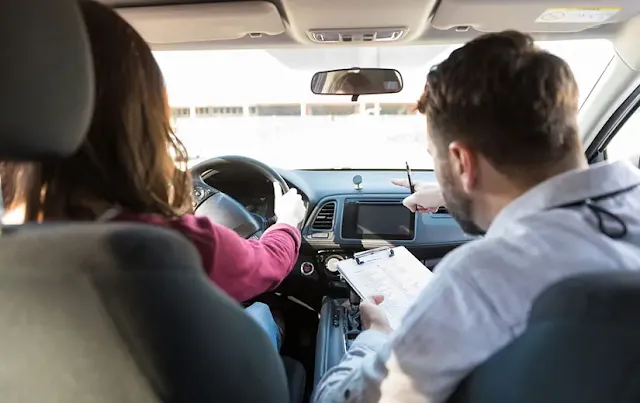You have passed the highway code exam and you are only one step away from getting your license: the driving test. It is normal to apprehend this ordeal that many miss by so little. Know that with good preparation and the right reflexes, this exam is not insurmountable. Here are our eight tips to pass your driver's license the first time.
DON'T OVERREACT TO THE TEST
It's true that failing the driving test can mean wasting time and adding to the cost of your license but don't overreact. It's just one of many tests you've taken in your life and will probably have to take in the future. Failing the driving test happens a lot, but it doesn't have to happen to you. And even if you do fail, you can take it again as many times as it takes to get your license.
LEARNING THE SKILLS YOU NEED
On the driving test, you won't be asked to do anything spectacular or to drive like a professional. No, you are only expected to demonstrate your mastery of nine basic skills that are graded from 0 to 3 points, 3 points for a skill acquired and 0 for a skill not acquired.
These skills are:
- Installation at the operator's station;
- The necessary checks inside and outside the car;
- Manipulating and checking the vehicle's controls and operation and taking information;
- Controlling the speed of the vehicle;
- Respecting the rules of the road and the regulations;
- Communication with other drivers;
- Positioning the vehicle on the road;
- Maintaining safe distances.
These nine skills must be demonstrated during the 32-minute driving test. Then, the examiner will check that you have acquired three other skills, called complementary skills. These are related to your autonomy and risk awareness.
Now that you know exactly what is expected of you during the test, you can prepare yourself both practically, by practicing, and mentally, by establishing a sort of mental checklist to be completed each time you take the wheel.
PRACTICE ENOUGH
Knowing how to drive means acquiring reflexes, mechanisms, and habits. To be able to drive smoothly and correctly during the test, you must practice sufficiently beforehand. If you don't feel ready for the test, you can take additional driving lessons to improve your driving. This investment can only pay off, as you can improve significantly in a few sessions.
Also, if you are not making progress, it may be because your instructor's method is not working for you, so don't hesitate to change your instructor if necessary.
REVIEW THE THEORY QUESTIONS
During the driving test, the examiner will ask you three theory questions. These are taken from a large set of questions. You should prepare your answers to these questions by downloading one of the many guides available on the web that contain all the questions the examiner may ask you and their answers.
HAVE CONFIDENCE IN YOURSELF
One of the worst enemies of student drivers on the test is a lack of confidence. Confidence is crucial because it allows you to act consistently and honestly. On the contrary, if you are not confident, you may hesitate a lot when you drive, which can affect your driving and cause you to fail the test. However, don't be overconfident or arrogant during the test, as the examiner may see this as a form of recklessness or carelessness. So be confident and assertive, but not arrogant.
PUT YOURSELF IN THE RIGHT CONDITIONS
Fatigue, stress, and excitement can cause you to fail the driving test. It is therefore imperative that you put yourself in the right conditions the day before the test. The day before and during the test, eat a healthy diet, drink enough water, and avoid stimulants in the evening. Try to get enough sleep so that you are fit and relaxed for the exam.
The day before the exam, while remaining relaxed, reread your flashcards and review the theory questions one last time, but do not overdo it. Preparation should be done well in advance, not the day before. This last revision will only serve to stimulate you and give you even more confidence in yourself.
PREPARE ALL YOUR DOCUMENTS
Before you begin the exam, the examiner will ask you to present certain documents. You should make sure you have them all by gathering them the night before and putting them carefully in a folder.
These documents are:
- The invitation to the exam;
- An identity document (national card or passport);
- A stamped envelope with your address, first and last name;
- Proof of passing the general technical test (ETG) or code. This can be found on the back of your Cerfa 02 or in the e-mail you received when you passed the code.











No comments:
Post a Comment